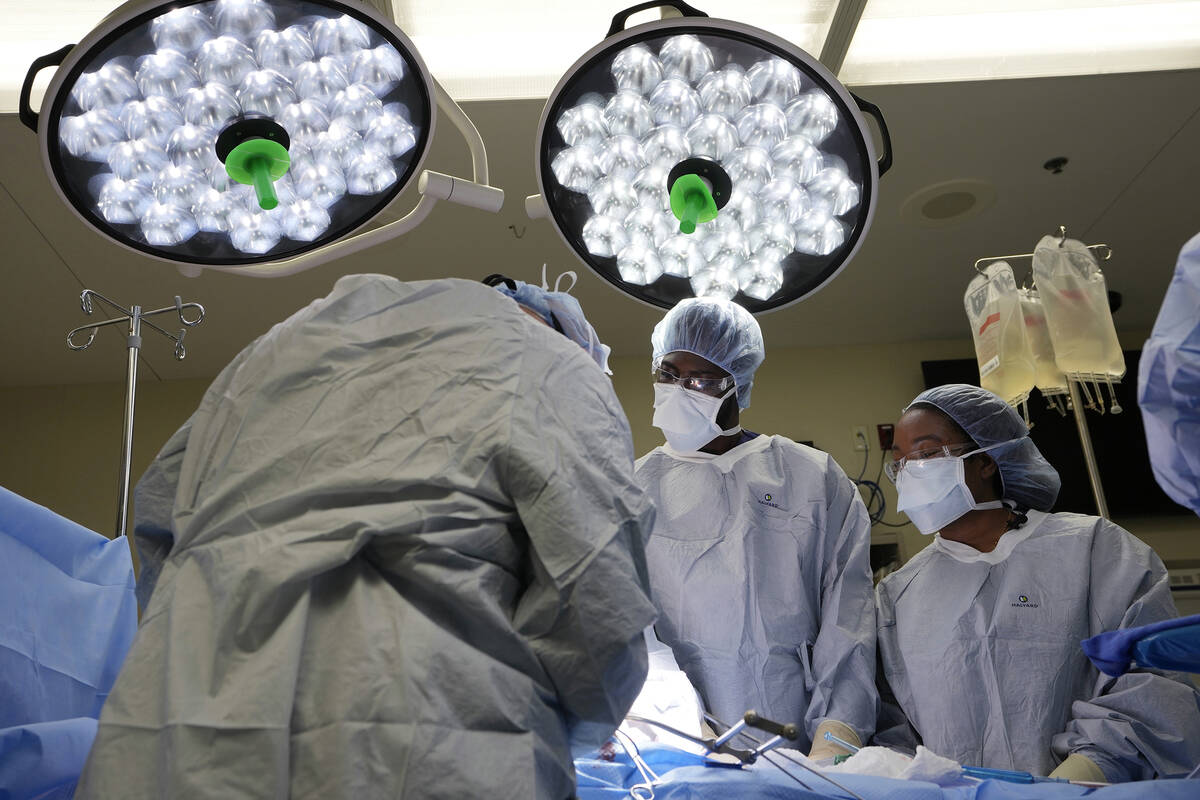Alleged near-miss shakes confidence in organ donation
Transplant experts are seeing a spike in people revoking organ donor registrations, their confidence shaken by reports that organs were nearly retrieved from a Kentucky man mistakenly declared dead.
It happened in 2021, and while details are murky, surgery was avoided and the man is still alive. But donor registries in the U.S. and even across the Atlantic are being affected after the case was publicized recently. A drop in donations could cost the lives of people awaiting a transplant.
“Organ donation is based on public trust,” said Dorrie Dils, president of the Association of Organ Procurement Organizations. When eroded, “it takes years to regain.”
Only doctors caring for patients can determine if they’re dead — the law blocks anyone involved with organ donation or transplant. The allegations raise questions about how doctors make that determination and what’s supposed to happen if anyone sees a reason for doubt.
Key is ensuring “all doctors are doing the right tests and doing them well,” said Dr. Daniel Sulmasy, a Georgetown University bioethicist.
An alleged near-miss
The 2021 case first came to light in a congressional hearing in September, with unconfirmed details in later media reports — allegations that a man who had been declared dead days earlier woke up on the way to the operating room for organ donation surgery and that there was initial reluctance to realize it.
The federal agency that regulates the U.S. transplant system is investigating, and the Kentucky attorney general’s office said it is “reviewing the facts to identify an appropriate response.” A coalition of Organ Procurement Organizations and other donation groups is urging that findings be made public quickly and the public withhold judgment until then, saying any deviation from the industry’s standards would be “entirely unacceptable.”
Donate Life America found an average of 170 people a day removed themselves from the national donor registry in the week after media coverage of the allegations — 10 times more than the same week in 2023. That doesn’t include emailed removal requests or state registries, another way people can volunteer to become a donor when they eventually die.
Dils’ own organ agency, Gift of Life Michigan, usually gets five to 10 calls a week from people asking how to remove themselves from that state’s list. In the past week, her staff handled 57 such calls, many mentioning the Kentucky case.
Reverberations in France
Unlike the voluntary U.S. donation system, French law presumes all citizens and residents will be organ and tissue donors upon death unless they clearly opt out.
After the reports from Kentucky reached France, the number joining that nation’s donation refusal registry jumped from about 100 people a day to 1,000 a day in the past week, according to the French Biomedicine Agency.
Dr. Régis Bronchard, an agency deputy director, said the spike “reflects anxiety, incomprehension among the general public” that could have “catastrophic consequences.”
What’s supposed to happen
Doctors can declare two types of death. What’s called cardiac death occurs when the heart stops beating and breathing stops, and they can’t be restored.
Brain death is declared when the entire brain permanently ceases functioning, usually after a major traumatic injury or stroke. Ventilators and other machines keep the heart beating during special testing to tell.
Only about 1 percent of deaths occur in a way that allows someone to become an organ donor — most people declared dead in a hospital will quickly be transferred to a funeral home or morgue.
But most organ donations are from brain-dead donors. Only after that declaration does the donor agency assume responsibility for the deceased, looking for potential recipients and scheduling retrieval surgery — while typically nurses at the hospital where the person died continue care to ensure equipment properly maintains their organs until they’re collected.
‘Extremely rare’
The donor agency and transplant surgeons arriving to retrieve organs must check records of how death was determined. Anyone — donor hospital employees, donor agency staff or surgeons — who sees anything concerning is supposed to speak up immediately.
“This is extremely rare,” Dr. Ginny Bumgardner, an Ohio State University transplant surgeon who also leads the American Society of Transplant Surgeons, said of the Kentucky case.
In operating rooms “the whole process stops” if someone sees a hint of trouble, and independent doctors are called to double-check the person really is dead, Bumgardner said. In her 30-year career, “I’ve never had a case where the original declaration was wrong.”
Georgetown’s Sulmasy agreed that problems are infrequent. But he said there’s wide variation in which tests different hospitals perform to determine if someone’s brain-dead, whether they’re a potential organ donor or not. Doctors are debating whether to add additional test requirements.
Stricter criteria could “assure the public that we have done enormous due diligence before we determine that somebody’s dead,” he said. It could help “to get people to stop ripping up their organ donor cards.”













